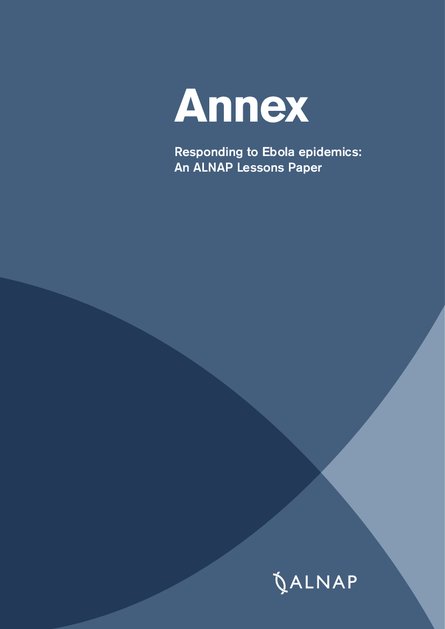
Epidemics of infectious diseases are occurring more often, and spreading faster and further across the world than ever before. The emergence of large-scale epidemics (such as Ebola, HIV/AIDS, SARS and, even more recently, COVID-19), the re-emergence of old diseases (such as tuberculosis and haemorrhagic dengue) and the persistence of epidemics of controllable diseases (such as measles, cholera or malaria) have led national governments and global institutions to consider epidemics as some of the most serious major public health emergency threats for the 21st century.
These annexes accompany the ALNAP Lessons Paper: Responding to Ebola epidemics, which aims to inform future humanitarian responses to Ebola and act as a guide for humanitarian practitioners. Some of the lesson paper findings – such as the lessons on coordination, funding and economic recovery – may also be transferable to responses to other epidemics.
The paper seeks to answer the research question: ‘What lessons for humanitarian practitioners can be drawn from the responses to the Ebola epidemic outbreaks since 2014?’